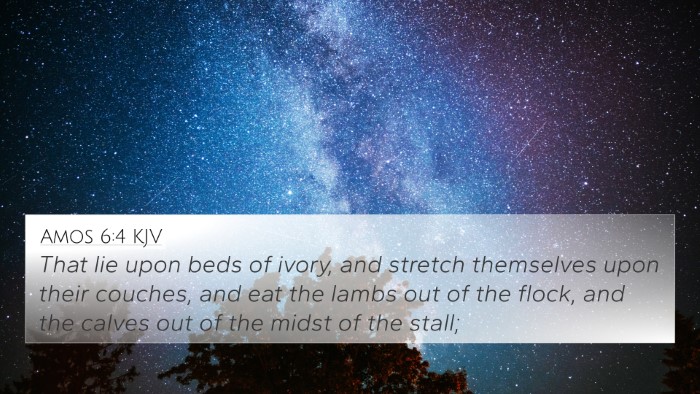Understanding Daniel 6:18
Verse Context: Daniel 6:18 states, "Then the king went to his palace and spent the night fasting; no musicians were brought before him. And his sleep fled from him." This verse follows the decree that led to Daniel being thrown into the lion's den, emphasizing King Darius's distress over Daniel's predicament.
Interpretations and Insights
The account reveals profound themes of faith, governance, and divine intervention. The king's sleepless night highlights his concern for Daniel, shedding light on the responsibilities of leadership and the weight of decisions that may harm the innocent.
Commentary Highlights
- Matthew Henry: Henry notes that the king's fast signifies his desire to seek God's favor and guidance regarding Daniel's fate. His inability to sleep underscores the emotional toll leadership can take, especially when faced with moral dilemmas.
- Albert Barnes: Barnes emphasizes the king's remorse and anxiety. He suggests that fasting during distress is an ancient practice that illustrates the depth of one's concern and desire for divine mercy.
- Adam Clarke: Clarke interprets the lack of music and the king's insomnia as indicators of his inner turmoil. Clarke points out that the king’s behavior demonstrates a contrast to the usual celebratory atmosphere associated with royal feasts, highlighting the seriousness of the situation.
Thematic Connections
Daniel 6:18 weaves into several larger biblical themes, establishing a narrative where personal integrity and faithfulness are rewarded, even amid perilous circumstances.
Cross-References to Daniel 6:18
- Daniel 3:16-18: Daniel and his friends exhibit steadfast faith when facing death, paralleling Daniel's situation of peril in the lion's den.
- Psalms 34:17-20: The assurance that the Lord delivers those who trust in Him enhances the connection between distress and divine intervention found in Daniel 6.
- Matthew 5:10: The beatitude on persecution for righteousness' sake correlates with Daniel's unwavering faith, drawing a line between biblical integrity and divine protection.
- 1 Peter 5:8-10: These verses highlight the idea of suffering for good works, much like Daniel’s plight and the king's struggle with the consequences of a decree.
- Hebrews 11:33-34: This passage discusses those who have endured trials by faith, very much like Daniel who remained faithful despite facing death.
- Proverbs 21:1: The heart of the king is compared to a stream of water, reflecting God's control over rulers and their decisions, resonating with Darius' tumultuous decisions.
- Isaiah 26:3: God promises perfect peace to those who trust in Him, akin to the peace Daniel might have had in facing the lions.
Practical Applications
For believers today, Daniel's story in the lion's den serves as a powerful reminder of the urgency of faith amidst trials. King Darius's actions prompt us to reflect on our response to those we are responsible for, especially during trying times.
Tools for Bible Cross-Referencing
Utilizing various Bible cross-reference techniques can deepen your understanding of scriptures:
- Bible Concordance: Using a concordance allows for easy identification of themes across multiple verses.
- Comparative Bible Study: Analyze the differences and similarities in various accounts, especially between the Old and New Testament.
- Digital Cross-reference Guides: Many online platforms provide tools for quick cross-referencing of Bible verses.
- Thematic Studies: Delve into thematic connections of scripture to build a broader context around specific teachings.
Benefits of Scriptural Cross-Referencing
Engaging with Bible verse connections enhances comprehension of scripture. Here are several benefits:
- Deepens one’s knowledge of biblical themes and messages.
- Fosters a holistic understanding of God's word.
- Reveals God's consistent character throughout history.
- Empowers more profound personal application and spiritual growth.
Final Thoughts
The narrative in Daniel 6:18 challenges each believer to contemplate the depth of their faith and the importance of supporting those in distress. It serves as a call to trust in divine sovereignty and to seek God's presence in moments of hardship.
In your study, utilize the mentioned cross-references to see the broader tapestry of God's message throughout Scripture, enriching your understanding of His unwavering presence in our lives.















